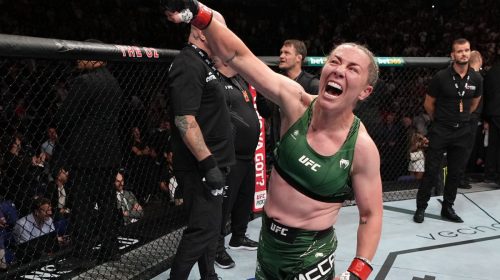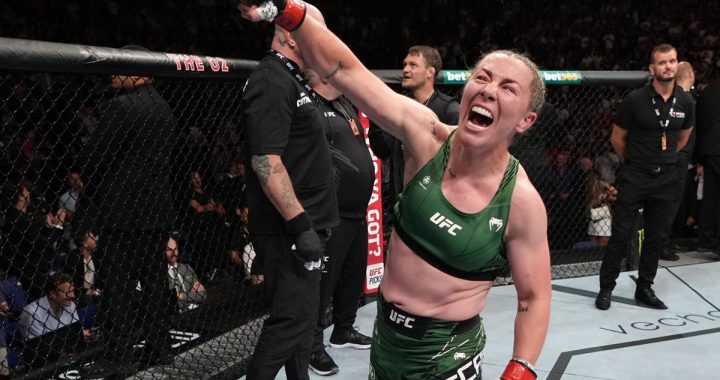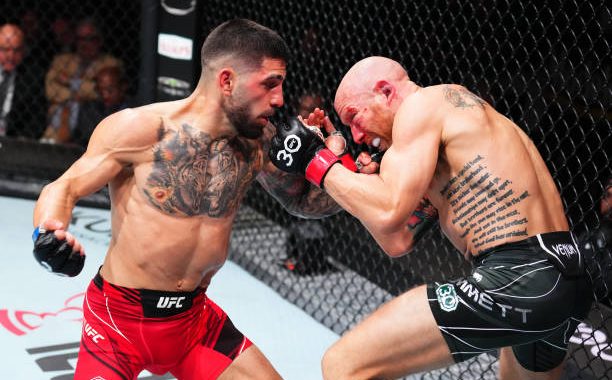
Patrick Day a casualty of an outdated system
Could Patrick Day have been saved by a rules revamp?
Days after the tragic passing of rising boxing star, Patrick Day, the boxing world has been left wondering “what if?” It is no surprise that there are increased health risks of competing in combat sports. Day, 27, succumbed to injuries sustained in his October 12th bout against Charles Conwell in Chicago, Ill.
While the boxing world mourned the death of the young professional, many writers and reporters were left to analyze how this took a drastic turn. Day was knocked down three times in the fight, the last ending the bout in the tenth round. Day is the fourth fighter to die from injuries sustained in the ring this year.
ESPN analyst Max Kellerman initially took to Outside the Lines to expand on the events. Kellerman discussed whether any changes could’ve been made to prevent the outcome. He mentioned the changes already implemented to shorter the fight from 15 rounds. What Kellerman specifically noted was changing fighter weigh-ins to the day of the fight, citing rehydration as a possible fix. But Kellerman left us with the impression that this sport is dangerous and waxing poetic about it would be just that. A sort of lore about the history of such a beautiful sport with potential longterm damages. Kellerman isn’t wrong, but I feel his diatribe may have been incomplete.
Changing the weigh-ins to the day of the fight does have it’s advantages.
As Kellerman explained, changing the weigh-ins would force boxers to change their mindset about moving down in weight classes. No one would disagree with that logic: why not fight closer to one’s natural weight? However, we have seen, in MMA, that fighters could potentially be less hydrated for a fight not having a full 24 hours to refuel. We talked with Steve Muehlhausen of the Sporting News and DAZN about advantages of this change. Muehlhausen was reporting on the event in Chicago when it happened.
“I don’t think thats a bad idea and I’ve been a proponent of that for a long time,” Muehlhausen stated.
“I think that’s something that should be done and I’m hoping that MMA gets to that point to where the weigh-ins are the day of the fight. But boxers don’t cut much weight … they’re not going to the extremes that you see in mixed martial arts. I hate saying this, but seeing it happen about 25-30 feet in front of me, covering it front row, I still think about it and I’m going to think about it for a long time. That’s the first fight I’ve ever covered live, MMA or boxing, that I’ve seen someone pass away. It was a hard thing to wrap my head around. But at the end of the day its still boxing,” he continued.
While I cannot contest the obvious advantages to a fighter’s overall health with these changes, will merely changing the weigh-ins save lives in the ring?
What if we mathematically eliminated boxers from bouts?
As Muehlhausen stated several times on the SFLC Podcast, certain aspects just aren’t sitting right. After all, reports are stating injuries were sustained in the ring, not in the weight cut. This got me thinking: how many of these incidents happened to fighters who were winning the fight at the time? We know that newer adopted rules have eliminated the three-knockdown rule which means the TKO we all learned playing Mike Tyson’s Punch Out is null and void. In most cases rounds are scored 10-9 awarding the winner the higher, unless a knock down happens which is generally scored 10-8. Day was knocked down twice prior to the last round. In all reality he lost two of the nine rounds 10-8, giving him a difficult four points to account for on the scorecard. Could math have ended this fight early and possibly saved a fighter’s life?
This is where boxing purists might ask for my head, but consider the following. In major league baseball, teams who have been mathematically eliminated from playoff contention will regularly shut down their ace pitchers and all-stars. In professional football, Tom Brady isn’t playing every down in the 4th quarter when his team is leading the Dolphins by 40 points. In skins golf, if you lose the first ten holes, the match is over. Using this logic, I proposed to Muehlhausen a similar concept for professional boxing.
“I’m not against the idea,” Muehlhausen simply replied.
“It’s always been the universal rule. Some [of] these [governing bodies] even have no knockdown, it’s just at the discretion of the referee. But you can get hurt by the one knockdown. That’s all it takes is one,” he continued.
There are certainly going to be exceptions to a possible rule change. It would take time to implement this idea to it’s fullest potential. But could a discussion like this start a rule change to make the sport safer?
“I’m not against the idea, I think its a pretty good idea,” Muehlhausen admitted.
“But then you could come back and say ‘he could get knocked down from the first shot.’ What do you do after that? I’m not against the idea. You want the sport to be as safe as possible, that’s the utmost importance. It is a thing of, ‘how do you go about it?’ I think its a great idea. I just think the commissions are too far behind in the times. Do I wish the ABC would look into something like that? Absolutely. Do I think they’re going to do it? Probably not. But that’s definitely a topic that should be discussed. Because the more safety you provide for the men and women, the better boxing will be. I think it’s actually a pretty good idea,” Muehlhausen finished.
As previously stated, these would be massive changes for any governing body in boxing to adopt.
I am also well aware of the boxing fan who wants my head of a spit for, basically, eliminating the puncher’s chance. But if the overall changes would give the sport a chance at saving these athletes from longterm injuries, it is hard to argue against having the discussion. The entire interview can be heard below.
























